The Conduit Lab published a spotlight in Journal of Cell Biology:
Building the centrosome: PLK-1 controls multimerization of SPD-5
Introduction:
Centrosome maturation relies on the assembly of an underlying molecular scaffold. In this issue of JCB, Rios et al. (https://doi.org/10.1083/jcb.202306142) use cross-linking mass spectrometry to reveal how PLK-1 phosphorylation promotes intermolecular SPD-5 self-association that is essential for…
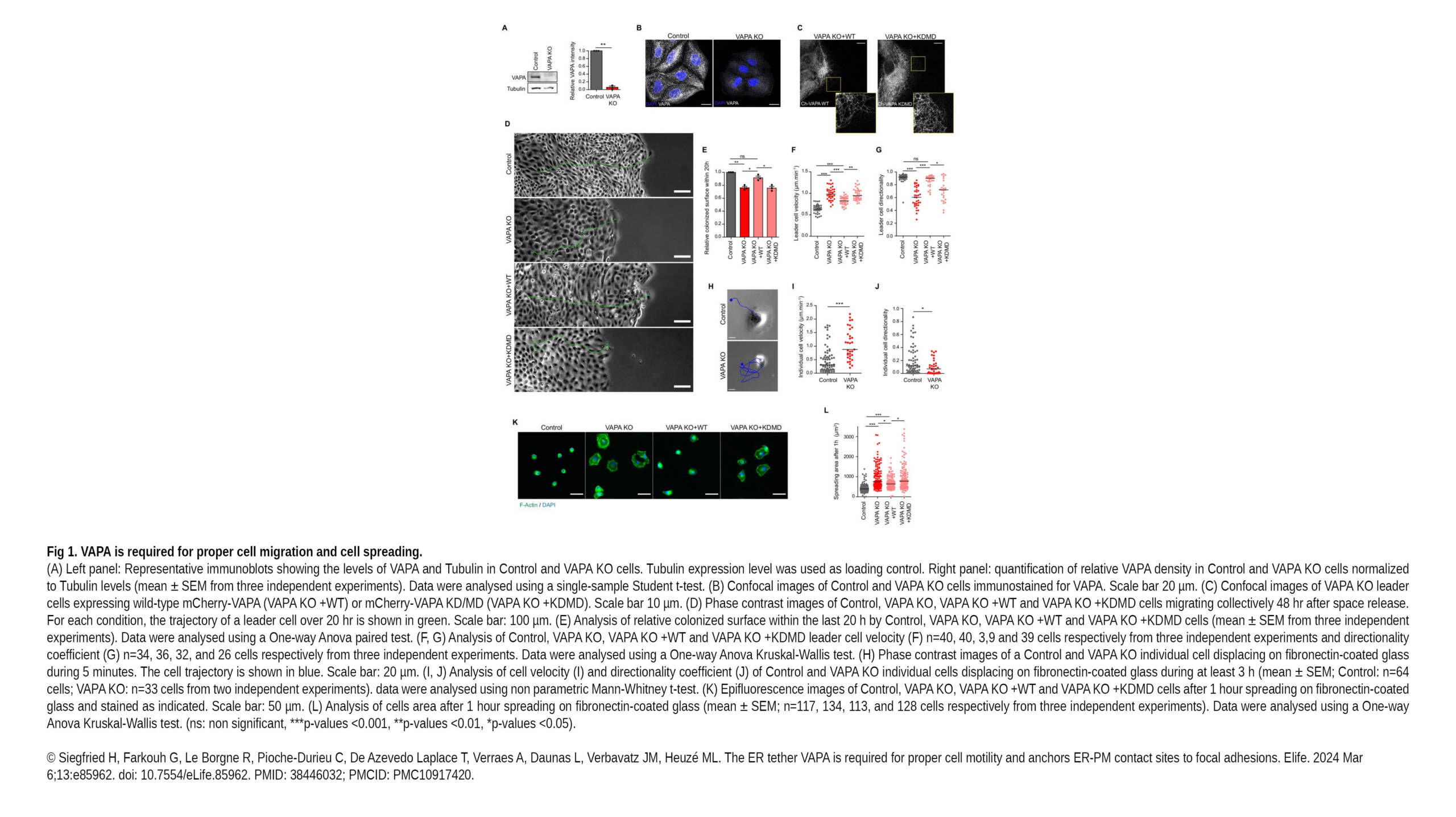
The Jackson/Verbavatz Lab published a new article eLife:
The ER tether VAPA is required for proper cell motility and anchors ER-PM contact sites to focal adhesions
Abstract:
Cell motility processes highly depend on the membrane distribution of Phosphoinositides, giving rise to cytoskeleton reshaping and membrane trafficking events. Membrane contact sites serve as platforms for direct lipid exchange…
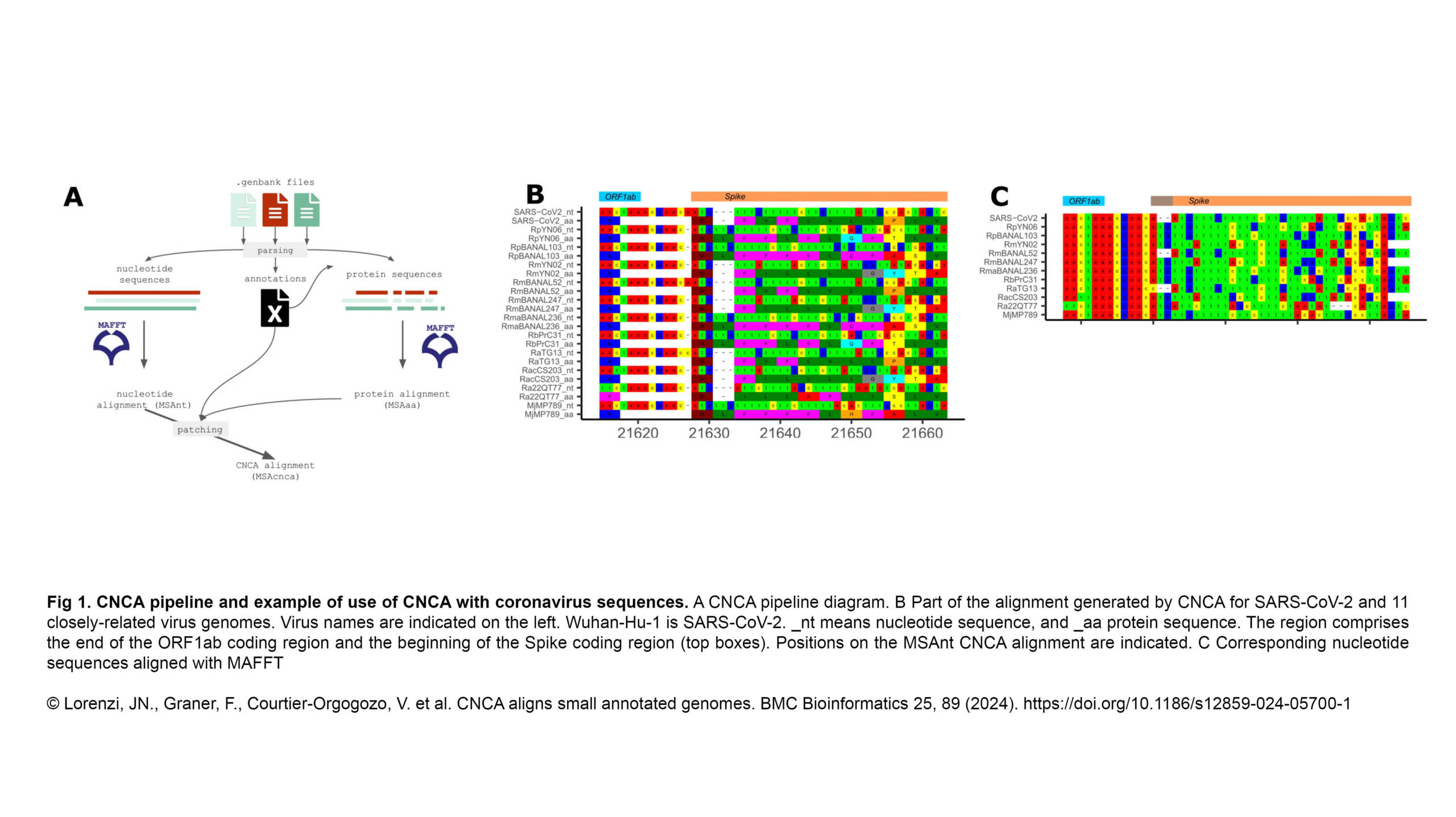
The Courtier Lab contributed to a new article published in BMC Bioinformatics :
CNCA aligns small annotated genomes
Abstract:
Background
To explore the evolutionary history of sequences, a sequence alignment is a first and necessary step, and its quality is crucial. In the context of the study of the proximal origins of SARS-CoV-2 coronavirus, we wanted to…
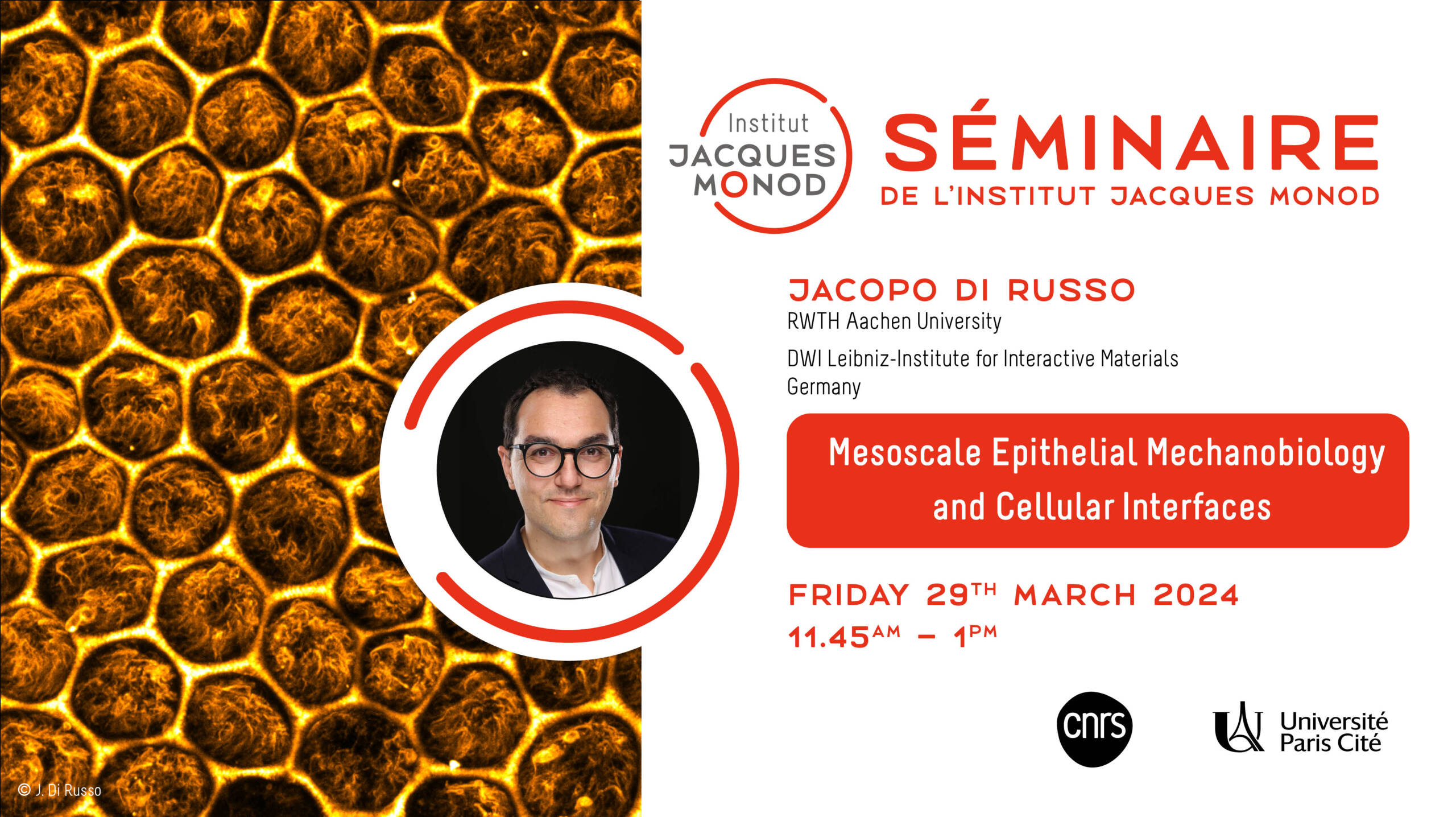
Invited by the Ladoux/Mège Lab, Jacopo Di Russo (REMeD lab - Interdisciplinary Centre for Clinical Research, RWTH Aachen University and DWI – Leibniz-Institute for Interactive Materials) will present an IJM seminar on the theme:
Mesoscale Epithelial Mechanobiology and Cellular Interfaces
Abstract:
Mechanical properties regulate tissue functions at a multicellular length scale or mesoscale. These properties depend on…
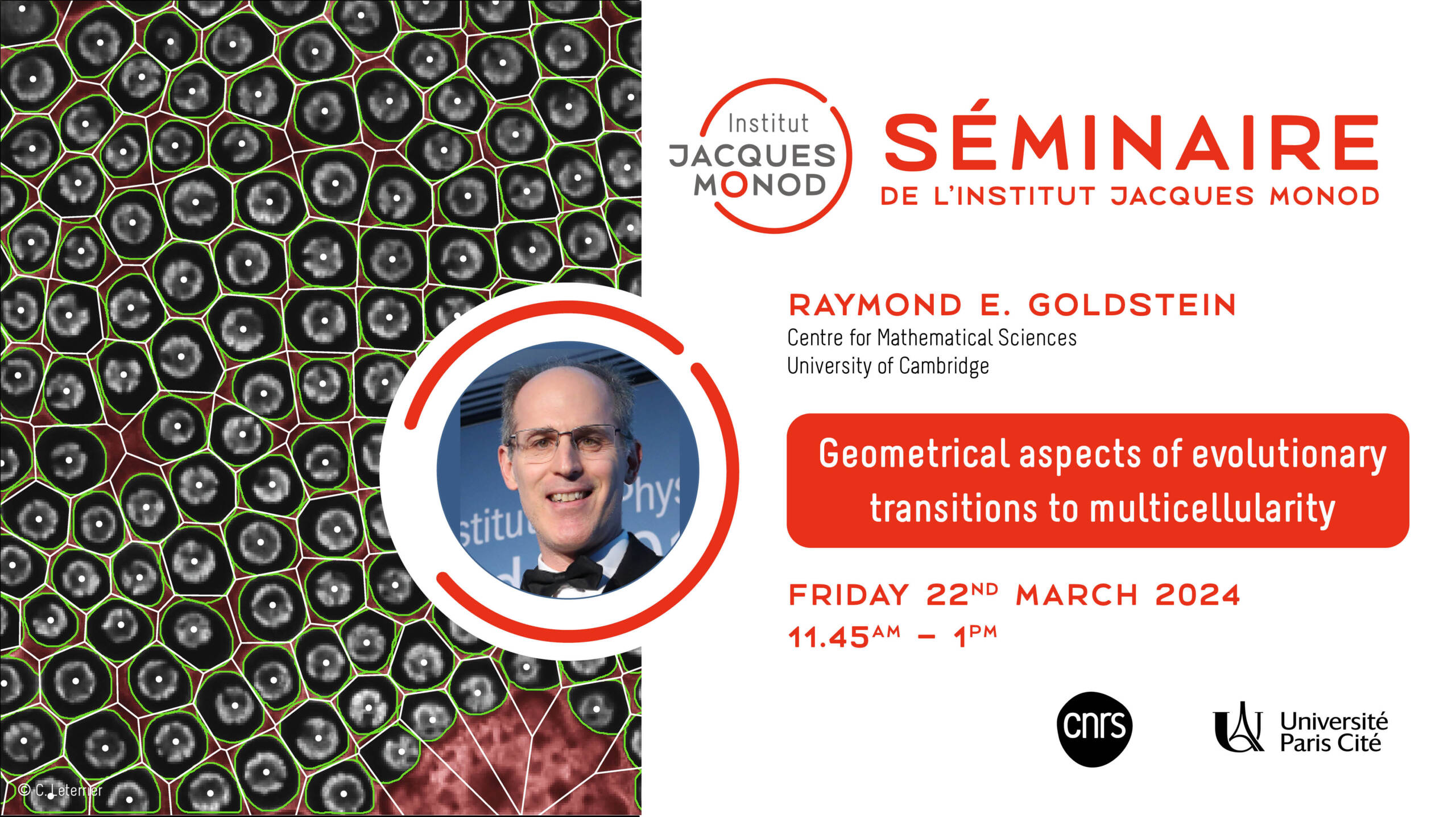
Invited by the Ladoux/Mège Lab, Raymond E. Goldstein (Department of Applied Mathematics and Theoretical Physics, Centre for Mathematical Sciences,University of Cambridge), will present an IJM seminar on the theme:
Geometrical aspects of evolutionary transitions to multicellularity
Abstract:
This talk will describe recent experimental and theoretical advances in understanding the dynamics and architecture of organisms that serve as models…
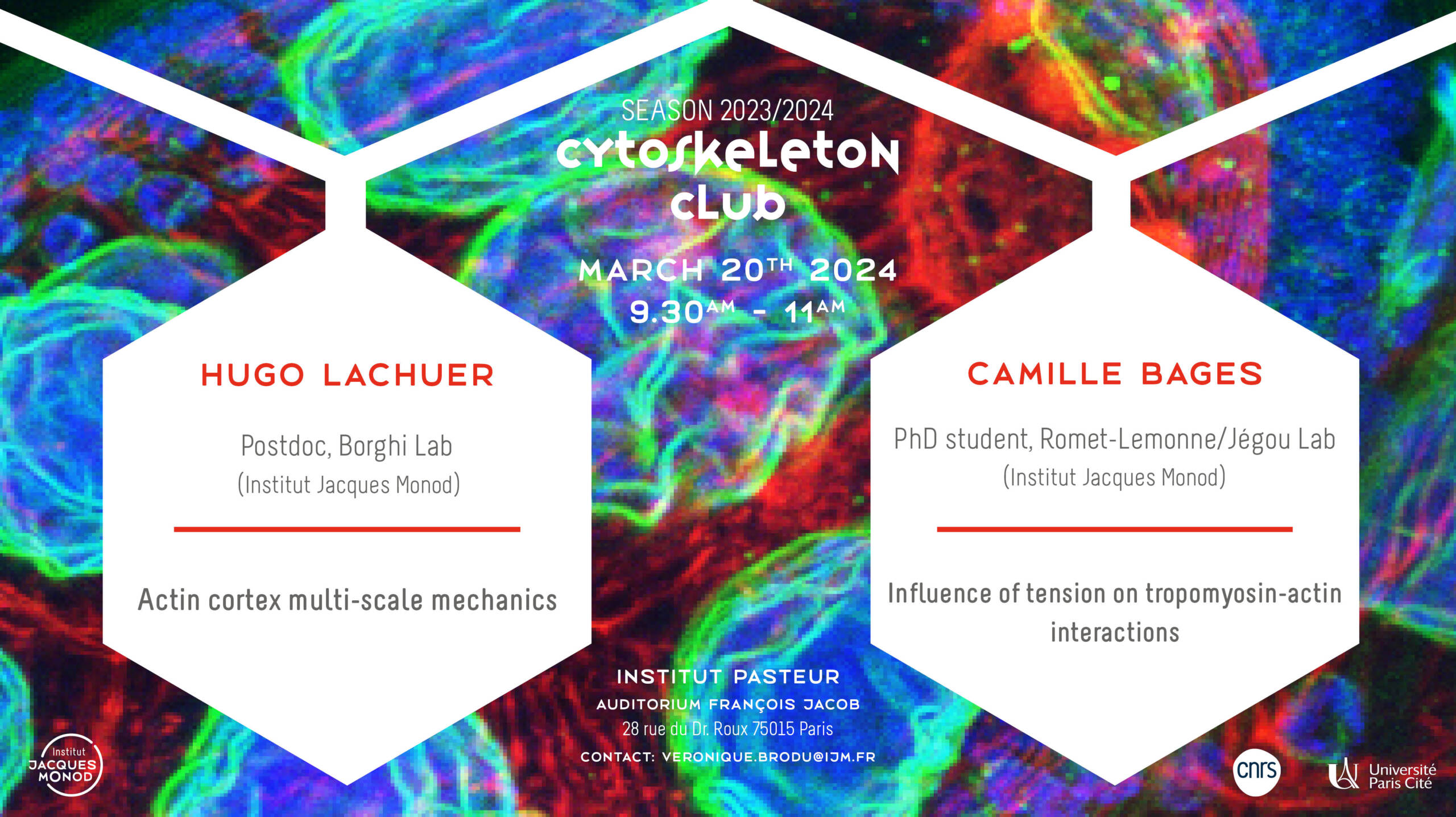
The next meeting of the Cytoskeleton Club will take place on Wednesday, 20th of March at 9.30 am at the Institut Pasteur (Auditorium François Jacob - 28 rue du Dr Roux 75015 Paris) :
Hugo Lachuer ( post-doc, Borghi lab, Institut Jacques Monod) will talk about « Actin cortex multi-scale mechanics »
Camille Bages (phD…
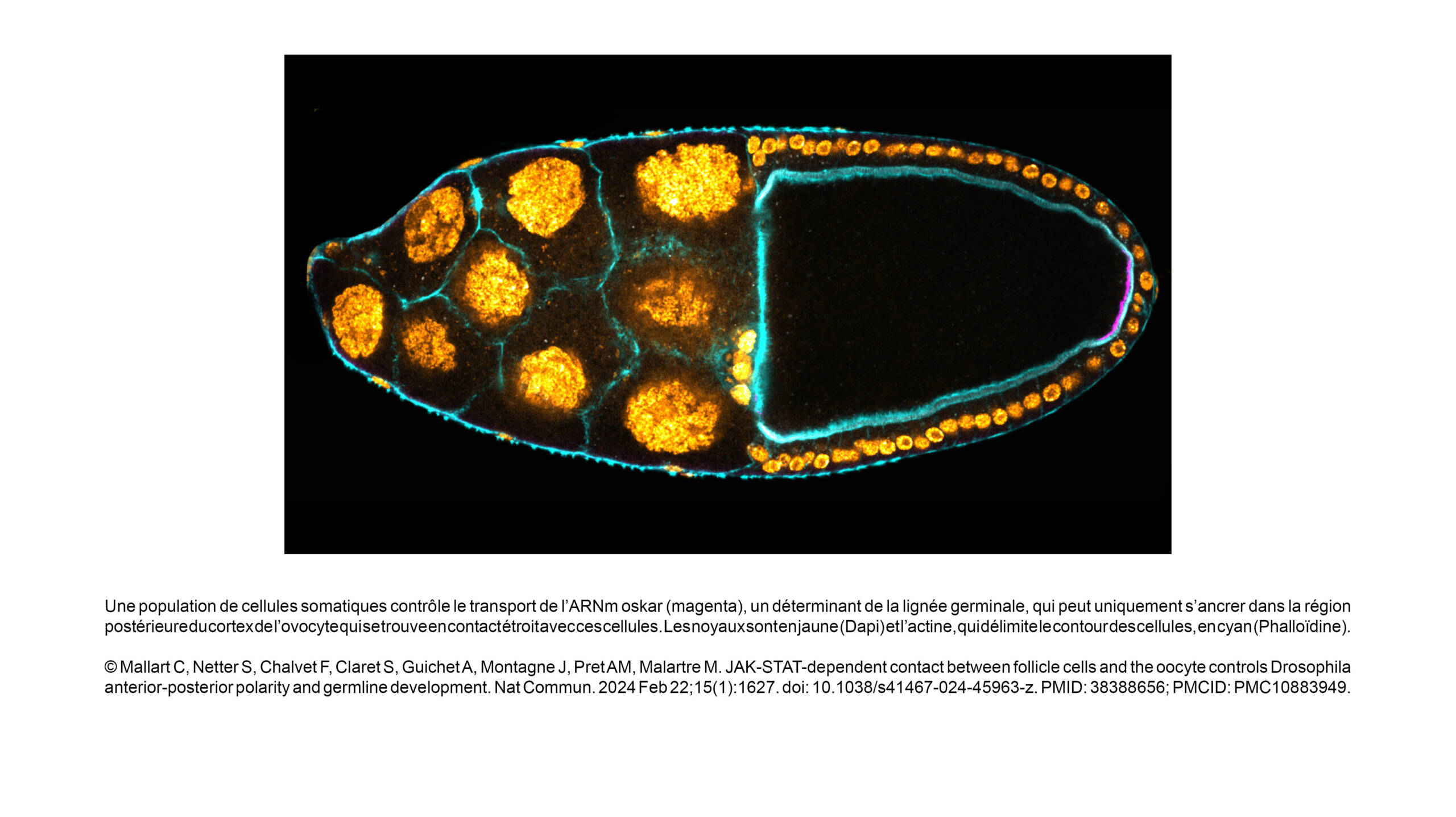
A new article has been published in Nature Communications:
JAK-STAT-dependent contact between follicle cells and the oocyte controls Drosophila anterior-posterior polarity and germline development
This study is the result of a collaboration between scientists of the Institut de biologie intégrative de la cellule (université Paris-Saclay) and Institut Jacques Monod (Konstantinides Lab, Minc Lab, Guichet Lab).
Abstract:
The number of embryonic…
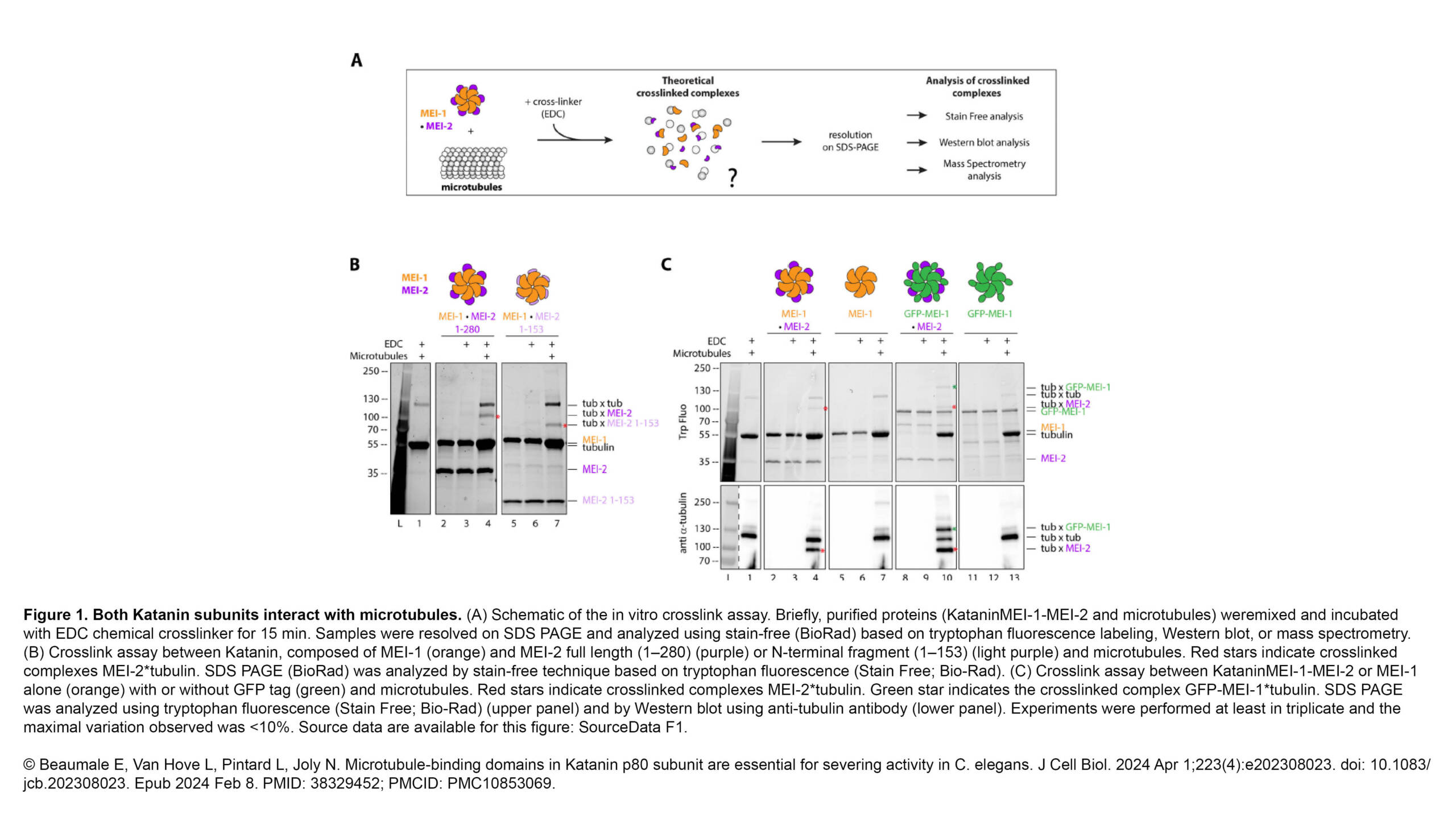
The Pintard lab recently published a new article in Journal of Cell Biology:
Microtubule-binding domains in Katanin p80 subunit are essential for severing activity in C. elegans
Abstract:
Microtubule-severing enzymes (MSEs), such as Katanin, Spastin, and Fidgetin play essential roles in cell division and neurogenesis. They damage the microtubule (MT) lattice, which can either destroy or amplify the…

The Courtier lab recently published a new article in BMC Ecology and Evolution:
Higher evolutionary dynamics of gene copy number for Drosophila glue genes located near short repeat sequences
Abstract:
Background
During evolution, genes can experience duplications, losses, inversions and gene conversions. Why certain genes are more dynamic than others is poorly understood. Here we examine…
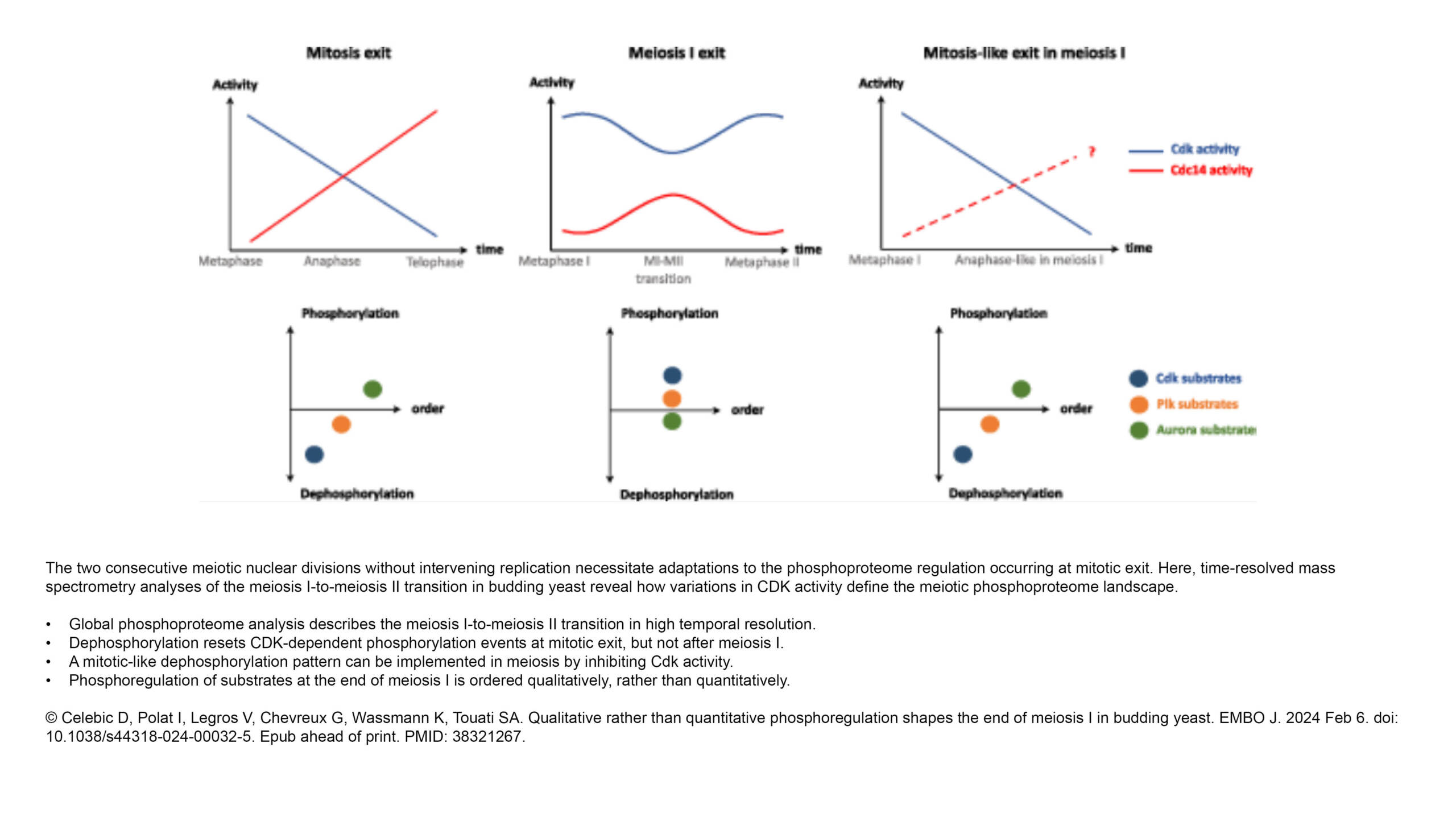
The Wassmann lab published a new article in EMBO:
Qualitative rather than quantitative phosphoregulation shapes the end of meiosis I in budding yeast
Abstract:
Exit from mitosis is brought about by dramatic changes in the phosphoproteome landscape. A drop in Cyclin-dependent kinase (Cdk) activity, the master regulatory kinase, and activation of counteracting phosphatases such as Cdc14 in budding…

